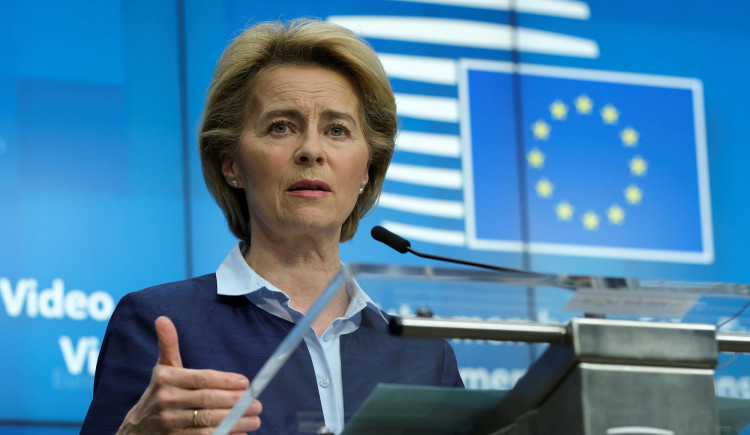Ursula von der Leyen has been confirmed for a second term as President of the European Commission, a move that signals strong support for her leadership and policies within the European Union. On Thursday, the European Parliament in Strasbourg saw an outpouring of congratulations for von der Leyen, a stark contrast to the skepticism she faced five years ago when she was an unexpected candidate for the role.
Von der Leyen secured her position with a comfortable majority, receiving 401 out of 707 votes, surpassing the required threshold of 360. This is a significant improvement from her narrow victory in 2019 when she won by just nine votes. "This is a very special and emotional moment for me," von der Leyen said at a press conference, describing her reappointment as a triumph for "pro-EU, pro-Ukraine, pro-rule of law" democratic forces.
During her first term, von der Leyen spearheaded ambitious climate goals, including a plan to achieve net-zero emissions by 2050. She also provided steadfast support to Ukraine in its conflict with Russia, overseeing substantial arms and aid packages. Additionally, she managed a significant post-pandemic investment drive, based on unprecedented levels of joint EU borrowing. These efforts have garnered approval from EU leaders, who endorsed her for another term.
Despite the strong backing from EU leaders, von der Leyen's confirmation required the approval of the European Parliament, the only directly elected body within the EU. The new composition of the parliament, elected in June, saw an increase in far-right representation, but not enough to disrupt the centrist majority that supported most of von der Leyen's legislation in her previous term.
After extensive negotiations, von der Leyen secured the support of four centrist political groups, including her own center-right European People's Party (EPP). This coalition of political families pooled 450 votes, providing von der Leyen with a comfortable margin. The center-left Socialists and Democrats (S&D) agreed to back her as long as she avoided alliances with far-right groups. Despite their poor showing in the recent elections, the pro-business Renew group and the environmentalist Greens also pledged their support.
Von der Leyen had engaged with the nationalist European Conservatives and Reformists (ECR), which includes Italian Prime Minister Giorgia Meloni's far-right Brothers of Italy party. However, she ultimately did not require their votes, nor could she rely on them, as the group did not explicitly instruct its members to vote against her, though Meloni's party members did.
In a speech to the European Parliament, von der Leyen outlined her political vision for the next five years, making promises to her supporters. She announced the creation of a new European Commissioner position dedicated to housing, likely to appeal to the S&D. She also proposed a Commissioner focused on migration in the Mediterranean, a nod to Meloni's interests. Von der Leyen emphasized "prosperity and competitiveness" and promised a "New Clean Industrial Deal" within her first 100 days in office.
Her speech also included a pledge to increase the number of European coast and border guards to 30,000 and to continue seeking deals to deport unsuccessful asylum seekers to non-EU countries. This policy has faced criticism from migrant rights advocates but is popular among right-leaning constituents.
As Thu Nguyen from the Brussels-based Jacques Delors Center noted, the real challenges lie ahead, particularly with the long-term EU budget negotiations starting next year. Despite these challenges, Nguyen welcomed the coalition of centrist forces that supported von der Leyen, viewing it as a positive sign against the far right.
Von der Leyen's immediate priority will be assigning the 26 remaining European Commission portfolios, with each member country, including herself, having a Commissioner. The final composition of the College of Commissioners will also require approval from the European Parliament.






